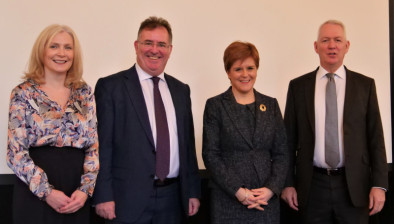CBI Scotland calls on Scottish Government to make good on promise to prioritise economy
After eighteen torrid months for Scottish business, where jobs and livelihoods have hung in the balance, CBI Scotland is calling on the SNP to use the forthcoming Programme for Government to make good on their election promise to “put the economy first”.

With COVID-19 restrictions largely removed, and society entering a new phase of ‘living with the virus’, the Programme for Government offers an early opportunity for the Scottish Government to turbo-charge Scotland’s post-pandemic recovery, while also working to control case numbers.
In a letter to the First Minister, CBI Scotland outlines practical actions in three clear areas, skills, investment in the green economy and boosting connectivity, where the Scottish Government can turn ambitions for Scotland’s economy into immediate action.
Tracy Black, CBI Scotland director, said: “During the election campaign we had parties of all stripes telling business that economic recovery was their number one priority. With skills shortages biting, stock levels dropping and the cost of materials soaring, it’s vital that the SNP, and their Scottish Green partners, use the Programme for Government to make good on their promise to prioritise our economic recovery.
“Part of that mission is to build confidence in the recovery by sending a clear message that it’s safe to go back to work and encouraging individuals to get out and spend money. The other is really focusing on the challenges and opportunities facing Scotland to build an economy that is fair, sustainable and competitive in the long term.
“CBI Scotland has highlighted a series of concrete policy recommendations that can be actioned now to turn lofty ambition into economic reality. Without immediate steps to boost growth and competitiveness, Scotland risks squandering the platform given to us by the vaccine and in turn choking off economic recovery at source.”
CBI Scotland policy recommendations to the First Minister include:
1. Invest in people’s skills to support future growth
Skills funding should be more closely aligned to industry needs and strike a better balance between undergraduate learning, work-based learning and short, sharp provision to support continual upskilling and rapid retraining.
An individual training account should be created for everyone over the age of 25 to incentivise lifelong learning by supporting people to invest in their own skills at key points throughout their career.
Digital skills should be embedded across all learning and a target set for equipping all workers with basic digital skills by the end of this parliament.
2. Back business to deliver a greener economy
Reform the planning and non-domestic rates systems to support investment in low-carbon infrastructure (e.g. by de-rating green improvements such as the installation of solar panels and heat pumps).
A rapid expansion of electric vehicle charging infrastructure, alongside an increased incentive package, would help boost demand for electric vehicles.
Mandate that any new domestic gas boilers installed after 2025 are ‘hydrogen-ready’ to help create a mix of options for low-carbon heat.
3. Make Scotland’s physical and digital infrastructure fit for the future
The Scottish and UK governments should work together to rollout gigabit-capable digital connectivity across all of Scotland by the end of this parliament.
Deliver a digital ticketing revolution across public transport with multi-modal fare options to help give customers a better experience and encourage greener modes of transport.
Set a national target of building 25,000 new homes each year across all tenures and deliver additional resource to local authority planning departments to facilitate faster, more responsive decision-making.









